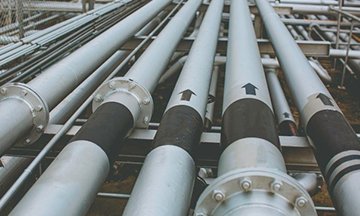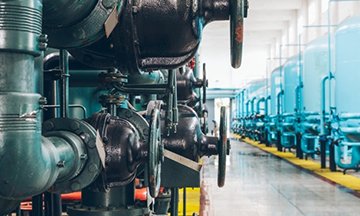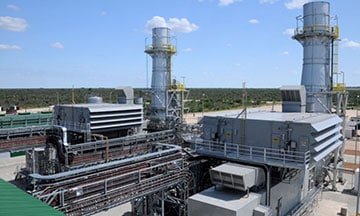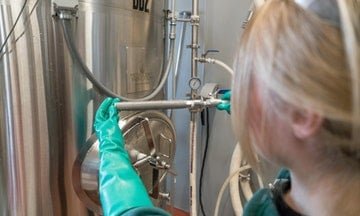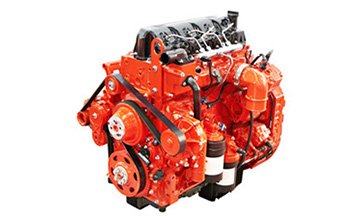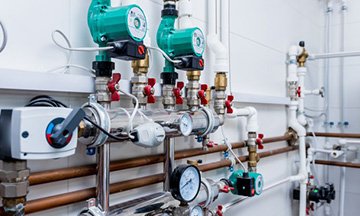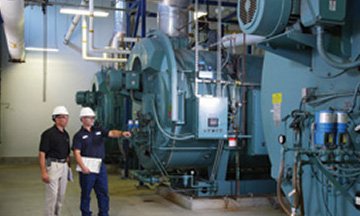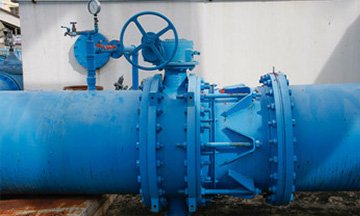Hydraulic System Course
Course Overview
Hydraulic systems come with some in-built safety hazards, but if workers are aware of these dangers and understand how to reduce or prevent them, many of these mishaps can be prevented.
What do you learn from hydraulics?
This course focuses on the safety, maintenance, and troubleshooting aspects of hydraulic systems along with its basics. It also discusses preventive and planned mechanical maintenance, specific repair/replacement recommendations, system diagnosis, and other troubleshooting operations that can be implemented to prevent accidents and operate hydraulic systems efficiently.
What is hydraulic course?
What will this “Hydraulic System Course” encompass? This course will provide you with a detailed understanding of hydraulic principles in mechanical maintenance, along with the different types of hydraulic fluids and their features. The program will also allow you to learn the components of hydraulic systems and their filters, strainers, pumps, piping, tubing, reservoirs, accumulators, hoses, relief valves, control valves, and other such essential mechanisms.
This Zoe training course will provide you with comprehensive and professional experience to understand the operation of a Hydraulic System, including its design, application, and troubleshooting factors.
Course Objectives
Upon completing this Hydraulic System Course successfully, participants will be able to:
- Learn the basic structure of hydraulic systems
- Identify common hazards associated with the hydraulic systems and equipment in the workplace
- Define proper standards of operations and procedures for working with various hydraulic components
- Ascertain the safety procedures that must be followed when operating or maintaining a hydraulic system
- List the factors that determine when and how proactive maintenance tasks should be performed
- Identify the tests that should be part of a preventative maintenance program
- Understand the function and structure of select hydraulic components
- Gain the knowledge to optimise hydraulic circuit design with the use of diagrams
- Study how to efficiently work with technical documentation
- Use hydraulic systems effectively in daily planning at the workplace
- Recognise the criteria for planning and designing hydraulic systems
Training Methodology
This collaborative Hydraulic System Course will comprise the following training methods:
- Lectures
- Seminars & Presentations
- Group Discussions
- Assignments
- Case Studies & Functional Exercises
Like all our other training programs, this course also follows the ‘Do-Review-Learn-Apply’ model
Organisational Benefits
Companies who nominate their employees to participate in this Hydraulic System Course can benefit in the following ways:
- Benefit from training your employees on the definition and importance of mechanical information, along with the different roles played within the Hydraulic System guidelines
- Learn and apply standards in equipment identification, equipment design features analysis, equipment performance calculations, safe operation and monitoring of equipment, and equipment maintenance
- Delegates will be able to apply the gained knowledge through this course and practice skills and that will impact their respective companies
- Maintain better organisational safety records
Personal Benefits
Individuals who participate in this Hydraulic System Course can gain from it in the following ways:
- Improve your career opportunities and increase your ability to work across worldwide industries like oil and gas, automobile, production, construction, aeronautics, etc
- Secure a relevant job anywhere in the world with the right knowledge in Hydraulic Systems
- Get promoted in your current job in the Hydraulic System field
- Acquire the professional skills and knowledge required to accomplish your tasks with optimal competence and accuracy
- Master the knowledge and techniques to see the future of an effective Hydraulic System process
- Discover how to work well with your machines and the risks of not being able to operate them accurately
- Contribute to your organisation by being knowledgeable enough to determine the need for a program/process at your workplace or understand an existing program better
- Get an opportunity to work through hands-on exercises in detail to gain the skills needed to facilitate a Hydraulic System study
- Gain the skills to plan, manage, facilitate, and scribe for a Hydraulic System project
Who Should Attend?
This Hydraulic System Course would be suitable for:
- Mechanics
- Fresh Graduates
- Operators
- Service Technicians
- Programmers
- Planners/Application Engineers,
- Managers
- Technical Trainers
- Those who are seeking a career change related to Hydraulic Systems
- Engineers who deal with equipment that is hydraulically operated
Course Outline
Module 1: Introduction to Hydraulic Systems
- Fluid Power and Its Scope
- Hydraulic Fluids Characteristics
- Hydraulic and Pneumatic System
- Applications of Hydraulic Systems
Module 2: Hydraulic System Components
- Hydraulic System Basic Components
- Measures for the Selection of Hydraulic System Components
- Open and Closed Loop Hydraulic System
- Hydraulic System Symbols Part
Module 3: Principles of Hydraulics and Hydraulic Fluids
- Pascal’s Law
- Main Components of a Hydraulic System
- Filters, Reservoirs, and Accumulators
- Closed and Open Loop
- Properties of Hydraulic Fluid
- Types of Hydraulic Fluids
- Fluid Selection
- Problems Related to Hydraulic Fluids
Module 4: Hydraulic Pumps & Actuators
- Classification and Performance of Hydraulic Pumps
- Variable and Fixed Displacements Hydraulic Pumps
- Gear Pumps
- Vane Pumps
- Piston Pumps
- Pressure Compensator and Load Sense Control
- Hydraulic Cylinders
- Hydraulic Motors
Module 5: Control Valves
- Classification of Control Valves
- Direct-Acting and Pilot-Operated Valves
- Pressure Control Valves
- Directional Control Valves
- Flow Control Valves
- Meter In and Meter out
Module 6: Operation and Hydraulic Circuits
- Operator Responsibilities
- Symbol of Hydraulic Components
- Operation of Regenerative Circuits
- Counterbalance Circuits
- Decompression Circuits
- Hydraulic Circuits of Various Machines
- Case Studies
Module 7: Cylinders
- Acting Cylinders
- Two-piston Cylinders
- Positional Cylinders
- Cylinder Construction
- Rings, Seals, and Packing
- Cylinder Mounting and Selection
- Flow Capacity
- Cushioning
Module 8: Hydraulic Motors
- Performance Specifications
- Starting, Running, and Stalling Torque
- Volumetric Efficiency
- Hydraulic Motor Construction
- Gear, Vane, and Piston Motors
Module 9: Maintenance and Troubleshooting of Hydraulic Systems
- Flow Chart of Hydraulic Circuits
- Troubleshooting Different Parts of Hydraulic Systems
- Assembling and Disassembling Hydraulic Units
- Inspection and Testing of Hydraulic Systems
- Maintenance of Hydraulic Systems
- Hydraulic System Contamination
- Hydraulic System Troubleshooting
Module 10: System Safety
- Hydraulic Safety
- Pumps and Relief Valves
- Conductors and Fluid Leaks
- Fluid Condition
- Guards, Safety Circuits, and Emergency Stops
- Control Valves
Module 11: Maintenance Practices
- Maintenance Systems
- Hydraulic System Maintenance
- Preventative Maintenance
- Predictive Maintenance
- Routine Tasks
Module 12: Fluid Maintenance
- Temperature and Appearance
- Eliminating Potential Contaminants
- Maintaining Clean Fluid
Module 13: Pump Maintenance
- Preventing Breakdowns
- Cavitation
- Other Pump Problems
Module 14: Hydraulic Component Maintenance
- Actuators
- Pressure, Flow, Directional Control Valve



